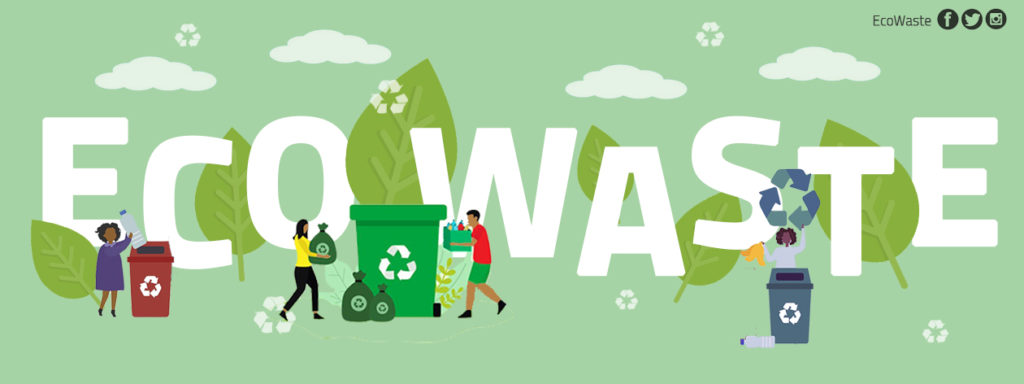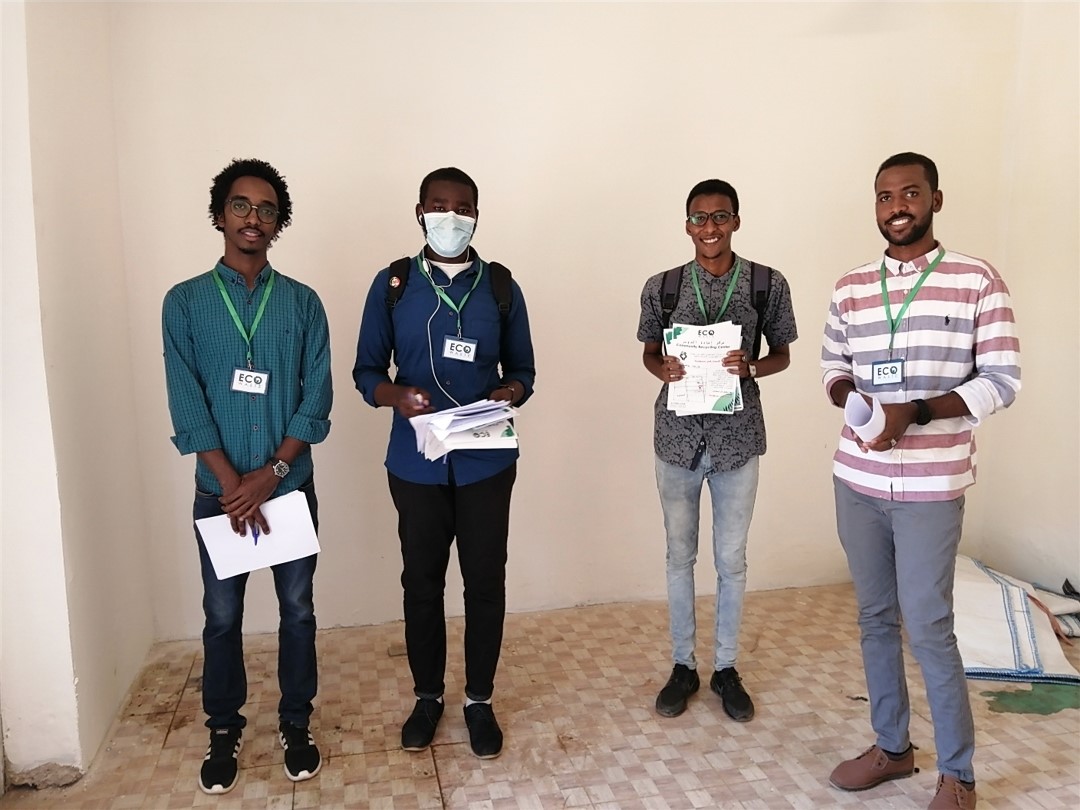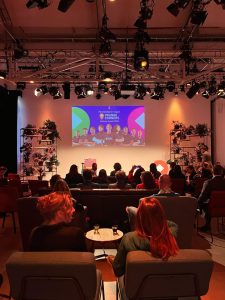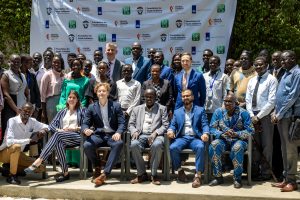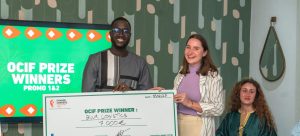Ecowaste combats an important societal and environmental issue in Sudan by improving waste management, providing environmental services and integrating the direct population.
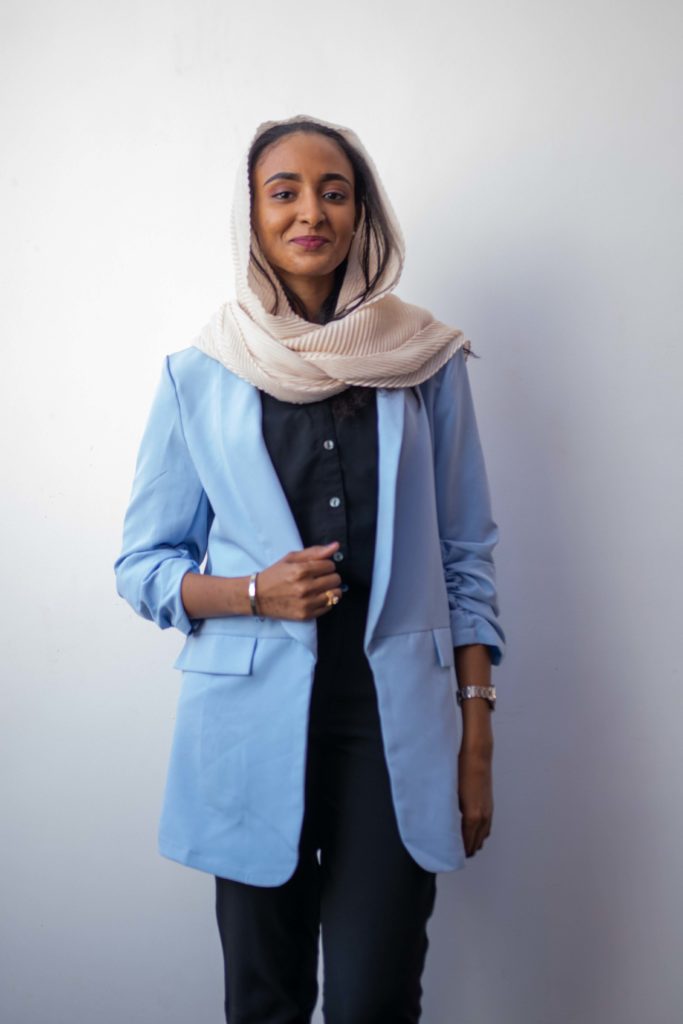
With an architecture degree in her pocket, the 26-years-old Rahma Ali was nescient of the business world when she entered the Orange Corners Programme in 2019. She first participated in the EmpowerHer workshops organised by Orange Corners Sudan. The sessions covered business presentations of successful female entrepreneurs who shared their experiences and challenges faced as female entrepreneurs, which incentivised Rahma to further build up her own startup, Ecowaste.
Ecowaste combats an important societal and environmental issue in Sudan. Its aim? Improving waste management, providing environmental services while integrating the direct population. As the population of Sudan is estimated to reach up to 100 million people by 2064, which is a double increase compared to now, increasing awareness and engagement on how to recycle for a zero-waste future in Sudan, is crucial. Rahma believes that citizens can have a tremendous impact on the today’s environment if only they know how to contribute to it in a sustainable way. Orange Corners HQ interviewed Rahma on the environmental service that her startup offers and to know more about her recently-opened community recycling centre in Khartoum.
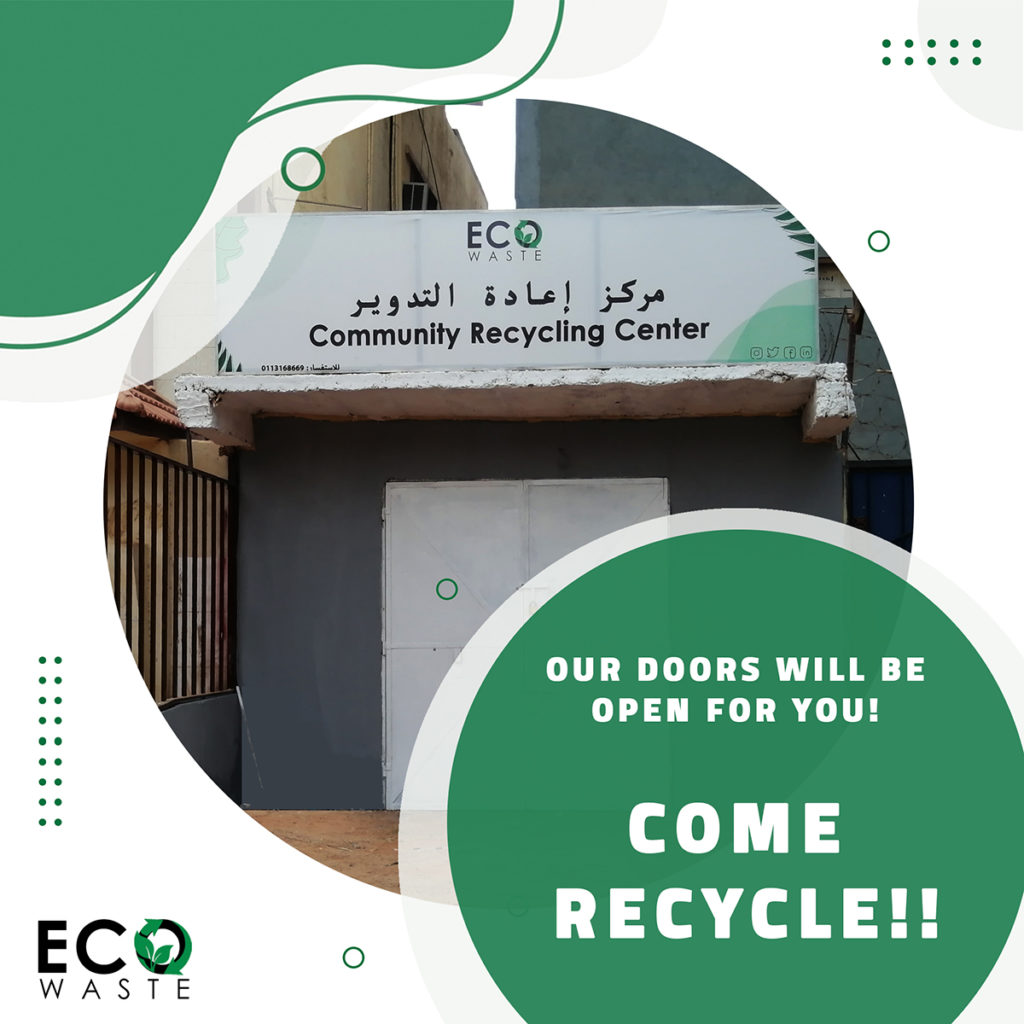
It was all a work in progress that enabled me to build Ecowaste at a later stage in my life.
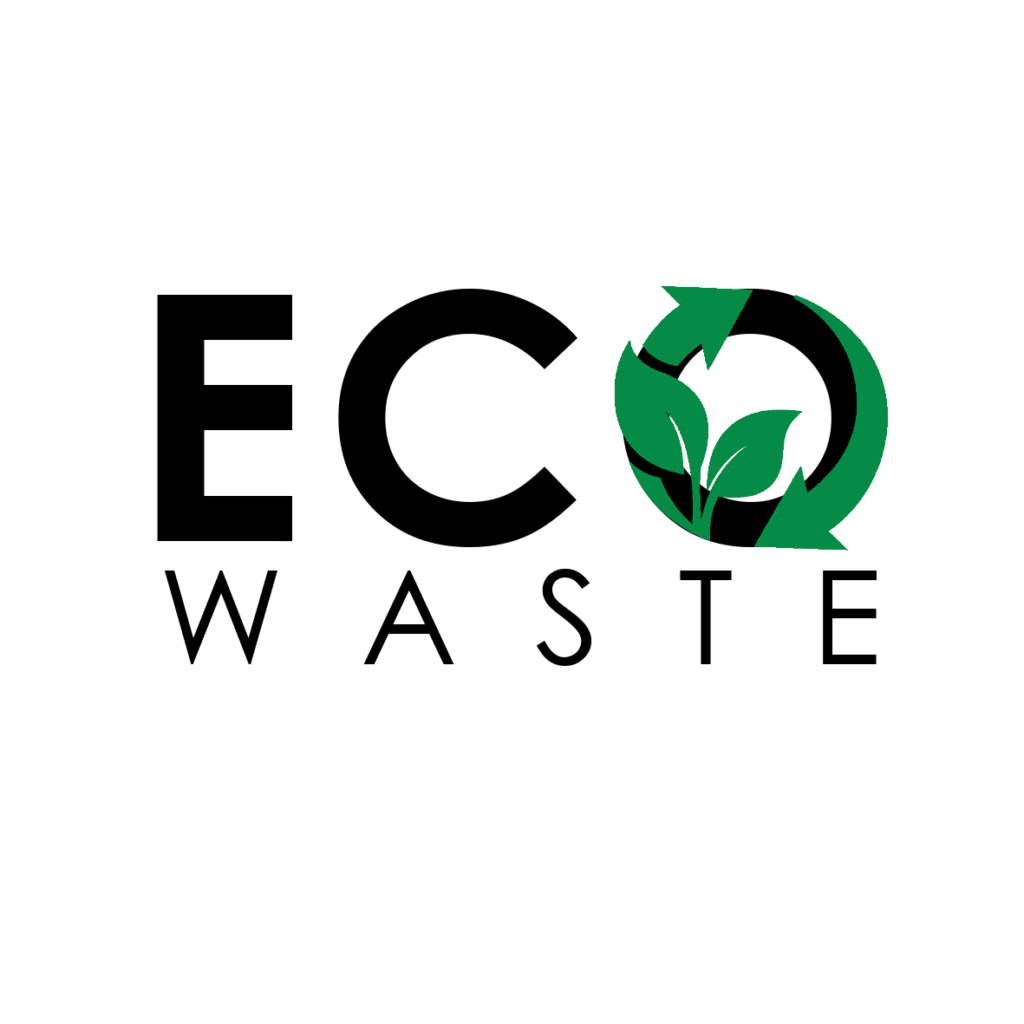
When and how did you get into the Orange Corners Programme?
“My friend advised me to participate in the female entrepreneurship workshop of Orange Corners. This was a great way for me to get to know entrepreneurship. Later on, I entered as an incubatee in the second cohort of the Orange Corners Programme in Sudan. I didn’t have a business plan or name yet, I only had an idea in mind. The network I was able to expand during the programme, from private partners, business mentors and to entrepreneurs encouraged me to further develop my idea. The entrepreneurs from my cohort and I still catch up on a weekly basis, during which we talk about our businesses and give each other advice. It truly feels like an entrepreneurial family.”
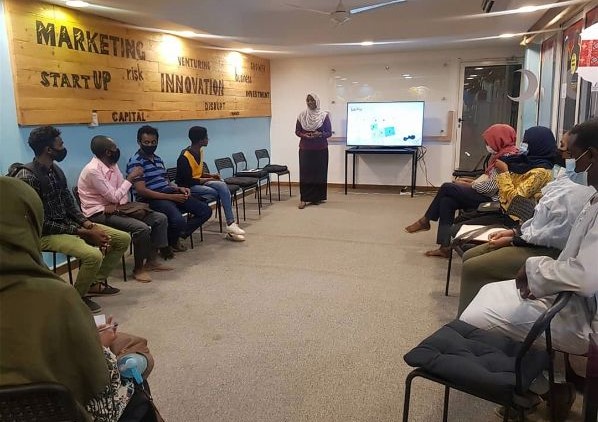
Could you tell us a little bit more about your background?
“Tackling environmental issues has been my main focus for the last few years. I gradually took a different view on the environment during my study in Architecture at Sudan University of Science and Technology. I believe architecture is the study of human behaviour and the environment with a focus point on how the two can affect each other. I was especially interested in how architecture and urban planning can serve as social environmental solutions. One of the things I notice when walking through Khartoum, are the piles of trash everywhere. I knew I had to do something about it, so I involved myself in non-profit organisations tackling environmental issues and worked for businesses offering sustainable products. It was all a work in progress that enabled me to build Ecowaste at a later stage in my life.”
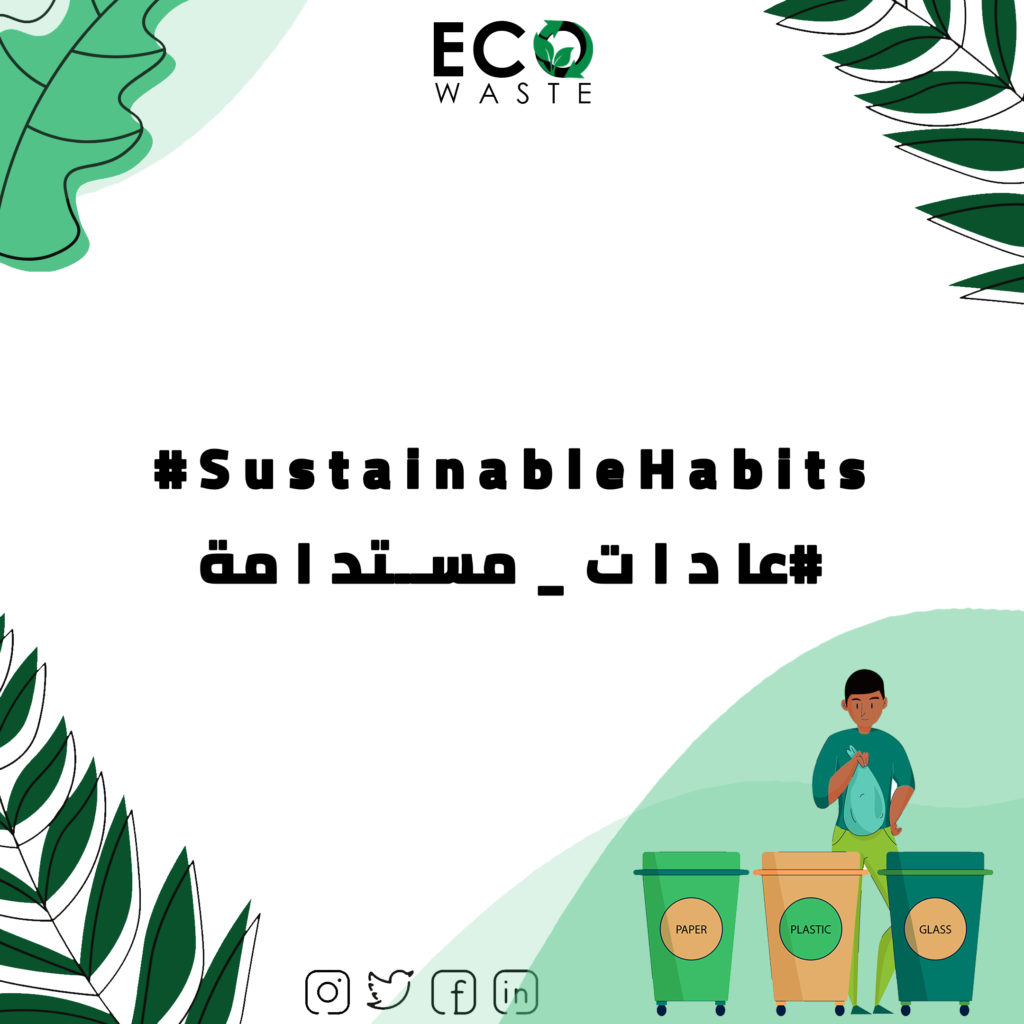
Could you tell us a little bit more about Ecowaste?
“The goal of Ecowaste is to tackle waste management issues in Sudan and to improve collecting waste management and recycling services. From a socio-environmental approach, we link waste generators such as households and companies with recycling facilities and factories. We have an active recycling industry, especially in Khartoum. But Ecowaste is trying to make that concept of source separated recycling more familiar to households. We do this through social media awareness campaigns and through our groups of volunteers, responsible for ground awareness campaigns. We call them our green army. They receive workshops in return, so they can directly bring this knowledge into practice. Our aim is to do more capacity building, attract more volunteers and encourage more people to start separating waste at home.”
The network I was able to expand during the Orange Corners programme, from private partners, business mentors and to entrepreneurs encouraged me to further develop my business idea.
Could you tell us more about the social mission of Ecowaste?
“In July 2021, my team opened our first community recycle centre which is considered the first of its kind in Khartoum. People can drop off materials that are recyclable and we bring them to a recycling factory. Plastic for instance, can be used for the textile industry and paper waste for egg plates. We analyse waste practices of organisations to increase their impact, but we also work together with embassies, in the hope to enhance the environmental ecosystem of Sudan as a whole.
Currently, we are setting up a strategic plan to combat the city’s scavengers problem, as the exertion to go through piles of garbage is extremely perilous and detrimental for one’s health. The majority of the waste pickers are underaged and don’t even have identification papers. They sell the garbage at a very low price with all that this implies. We hope to integrate them in our recycling process so that they can help us with sorting out garbage from home instead of from the piles. In less than two months we have been working with more than 60 families, but we hope to reach more people through our educational awareness campaign and via our community centre. Improving environment is all about changing human behaviour and increasing support and collaboration.”
As female young entrepreneurs, we have to stand up and show that we are capable of making a change and impacting our direct community and society. Changing the perspective on what females can do instead on what they can’t do, will help to enhance the Sudanese entrepreneurial ecosystem and other countries in Africa.”
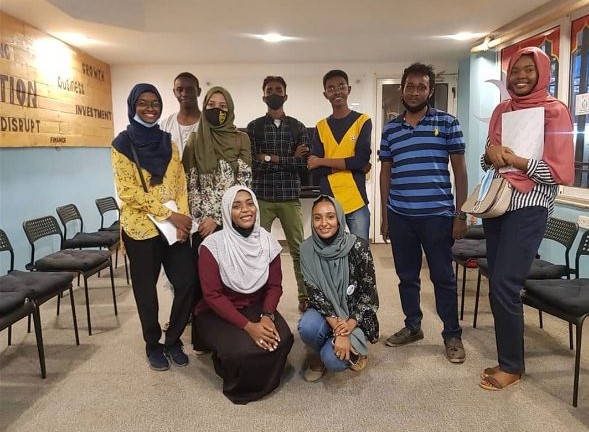
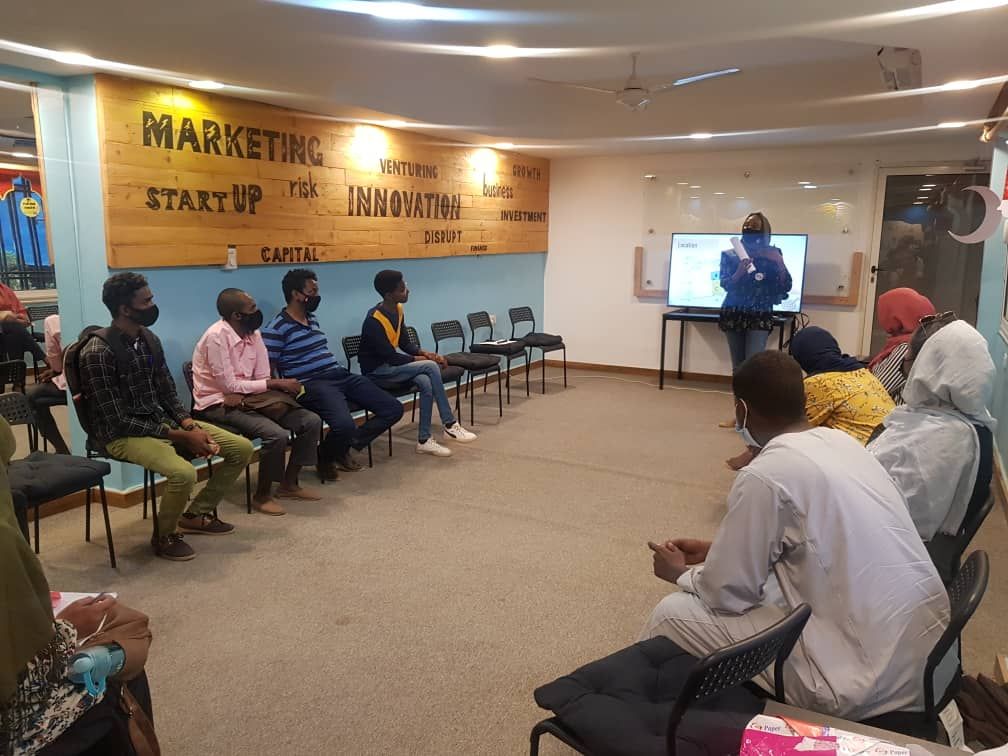
What struggles did you encounter with starting your own business and how did you overcome it?
“One of the greatest obstacles I personally encountered, was that I would not be taken seriously if I would make entrepreneurial steps by myself, without a man by my side. Empowering females in making decisions for themselves will only help to improve gender equality. But hurdles still remain. I try to ignore them and keep moving forward. As female young entrepreneurs, we have to stand up and show that we are capable of making a change and impacting our direct community and society. Changing the perspective on what females can do instead on what they can’t do, will help to enhance the Sudanese entrepreneurial ecosystem and other countries in Africa.”
Our driving force is providing sustainable solutions for the people and by the people, as they are the focus point of our project. Increasing human and corporate food waste awareness is predominant for sustainable and prosperous future.”
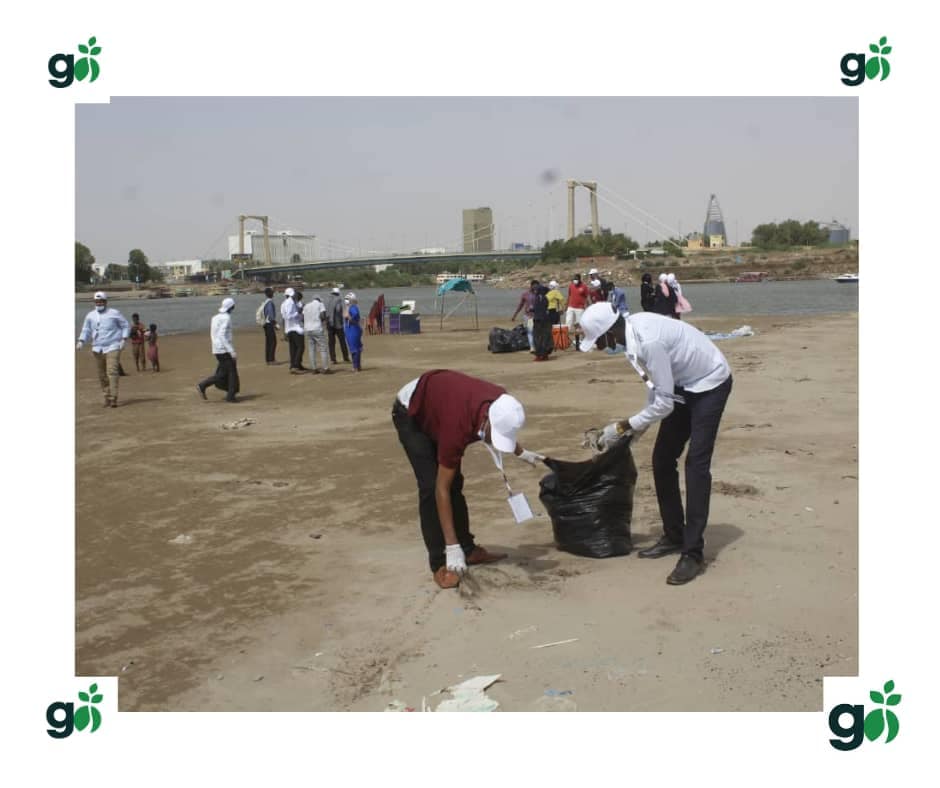
Where would you like to see the start-up in five years?
“Our target is to become the number one waste management entity in Sudan where people in the recycling and upcycling business, either small or big, can come to us for data, material and guidance regarding waste management issues. We aim to incorporate a high number of
scavengers in our recycling process, open more recycle centres in Sudan and change citizen recycling behaviors, get a lot of parties interested in what we do, including embassies. But our driving force is providing sustainable solutions for the people and by the people, as they are the focus point of our project. Increasing human and corporate food waste awareness is predominant for sustainable and prosperous future.”
Our aim is to do more capacity building, attract more volunteers and encourage more people to start separating waste at home.”
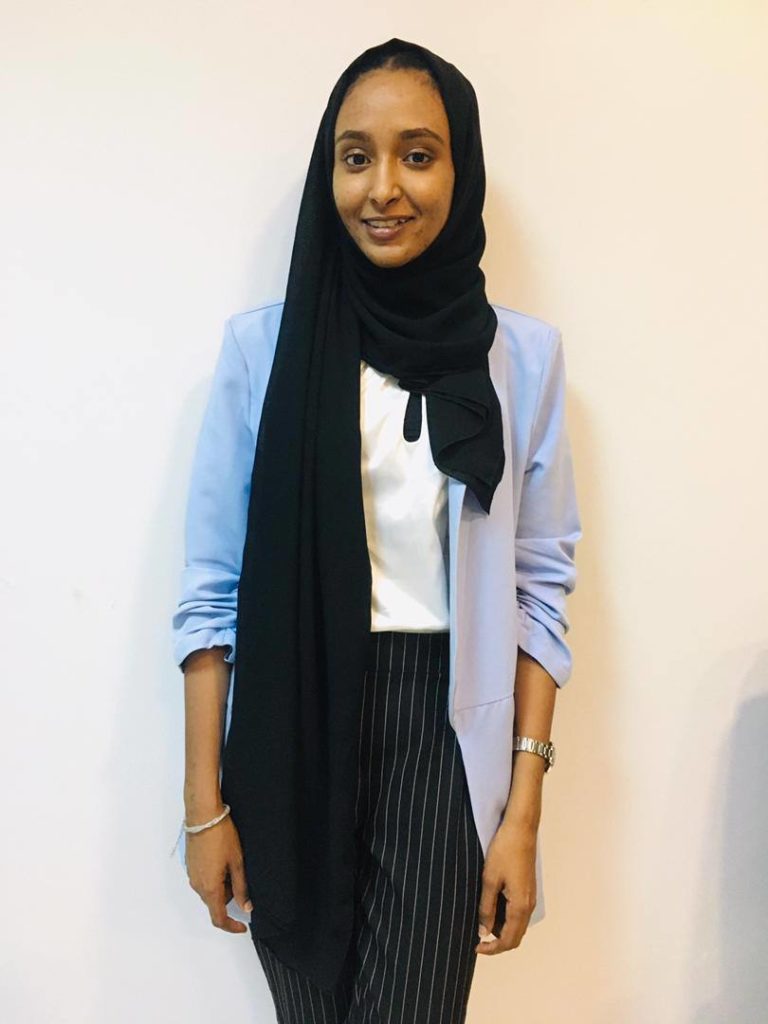
What other advice would you give to aspiring or current entrepreneurs?
“I would advise to seek for support if you are just about to start a business, because there is always someone out there that is willing to help you with everything they have. This is for example what we were received through the Orange Corners Programme. The support we got, tremendously pushed our business to go forward and helped us establishing our business foundations. Talk about your idea and discuss the strengths and difficulties with the people around you, because someone out there will shed a different light on your idea and can help you with showing the ways to implement it. Ask yourself which problem you wish to tackle and try to engage your direct environment in the execution. These questions will help you to create a business that will last a lifetime!”
Instagram: https://www.linkedin.com/company/ecowaste-sd/
Facebook: https://www.facebook.com/EcoWaste.sd
Linkedin: https://www.linkedin.com/company/ecowaste-sd/
